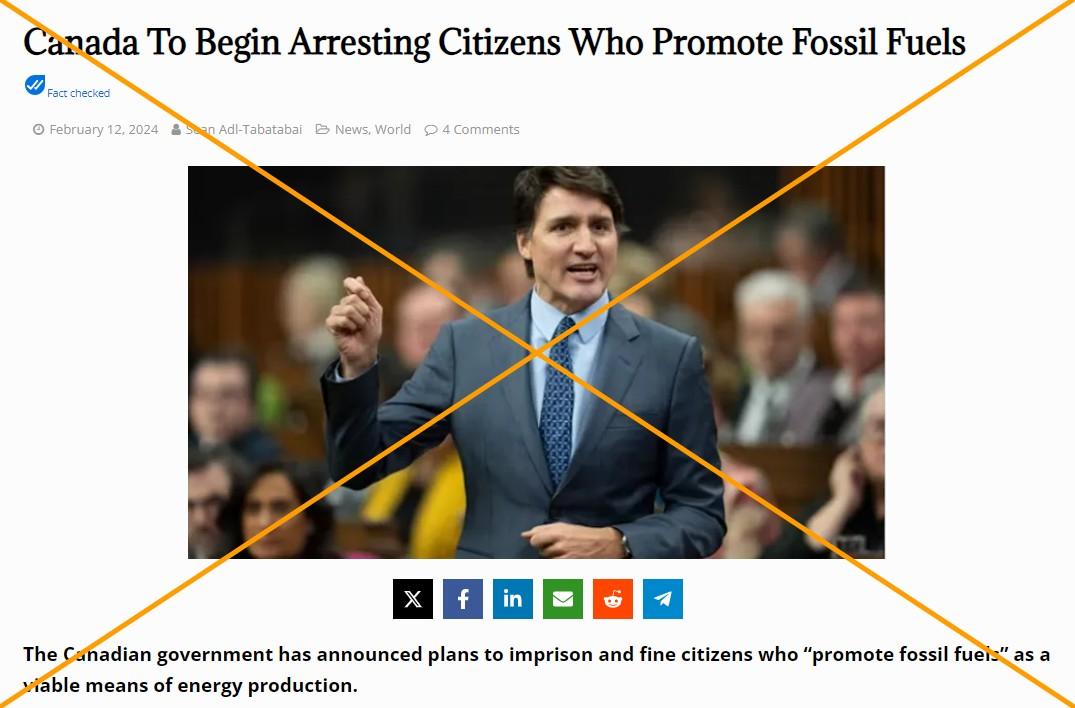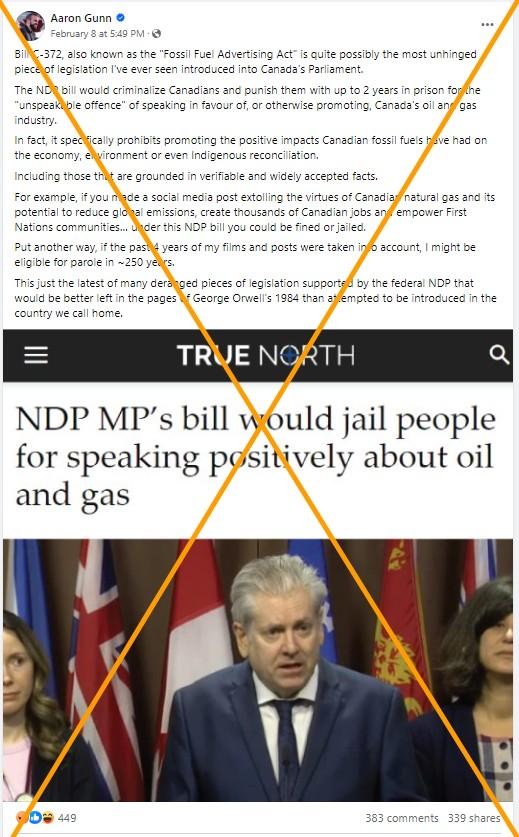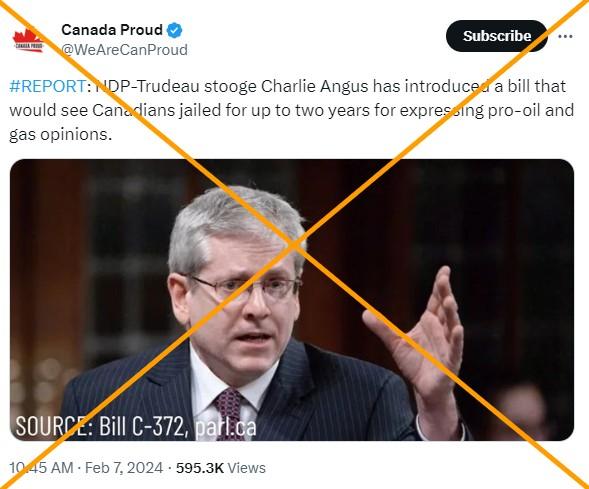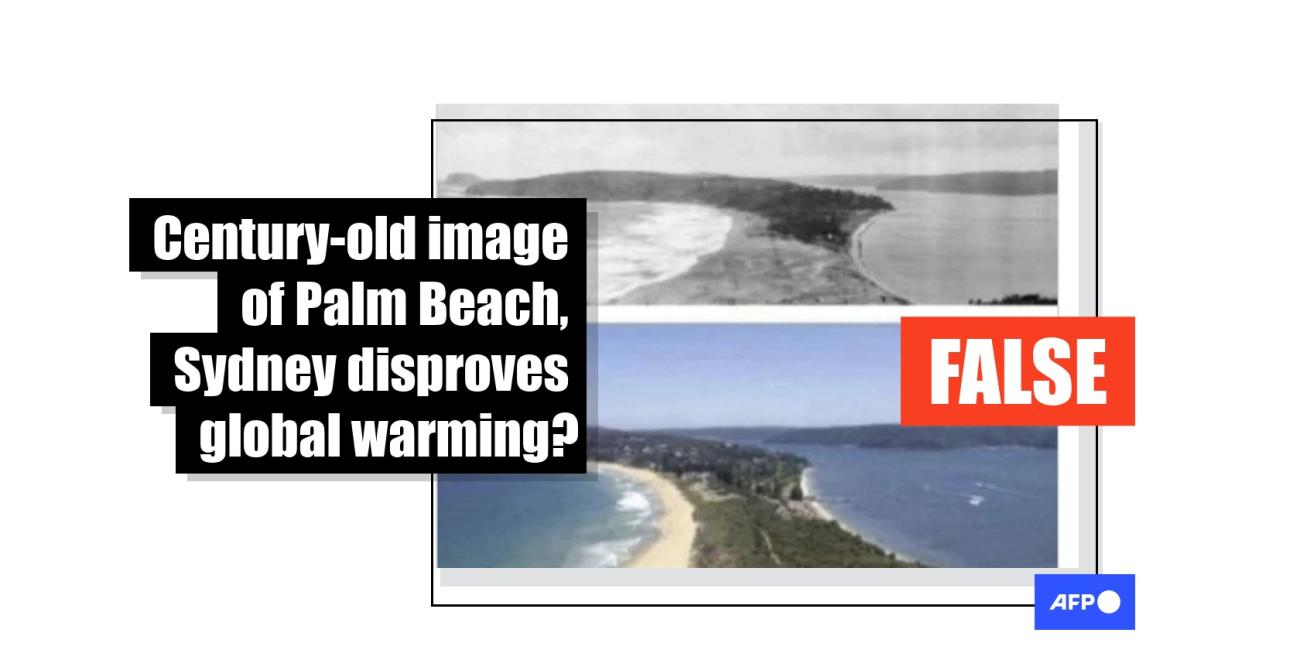
Posts misrepresent Canadian MP's proposal to ban fossil fuel ads
- This article is more than two years old.
- Published on February 14, 2024 at 22:53
- 3 min read
- By Gwen Roley, AFP Canada
"Canada To Begin Arresting Citizens Who Promote Fossil Fuels," is the headline of a February 12, 2024 article from The People's Voice -- a known publisher of misinformation which AFP has fact-checked in the past.

The publication comes after a week of strong reactions to a private member's bill (archived here) tabled in Canada's parliament on February 5 by New Democratic Party (NDP) member Charlie Angus.
After the first reading of the bill titled, "An Act respecting fossil fuel advertising," posts began circulating on Facebook and X -- formerly Twitter -- with claims that the proposed legislation aims to criminalize any positive speech about the oil and gas industry.

The posts are correct that the bill aims to prohibit the promotion of fossil fuels and stipulates financial penalties or imprisonment for violating its regulations, but the implication that it is on the cusp of becoming law is misleading. Proposed legislation must face multiple readings in Parliament before being put to votes in both the House of Commons and the Senate (archived here).
Emilia Belliveau, the energy transition program manager at Environmental Defence, said a private member's bill from a minority party faces an uphill battle to passage.
Opinion protected
Additionally, claims that Angus's proposal would penalize anyone sharing positive opinions about fossil fuels are inaccurate.
Belliveau said the bill is more aimed at advertisements, with provisions similar to Canada's established Tobacco and Vaping Products Act, which restricts the promotion of goods containing tobacco (archived here).
"No one has ever gone to jail for saying they like cigarettes," she said.
The bill is backed by groups including the Canadian Association of Physicians for the Environment, a group that has campaigned against fossil fuel ads.
Andrew Leach, an economics and law professor at the University of Alberta, said that the bill includes a stipulation that protects opinion, commentary, reports and artistic works.
"[An] editorial board writing on why Canada should have more [liquefied natural gas], that's still going to be okay," he said. "But in terms of paid advertising, certainly the paid content that you see in written media or anything like that -- television commercials -- it all seems that would be outside."

What qualifies as promotion?
France and the municipal government of Amsterdam have each adopted policies banning fossil fuel advertisements.
Leach said the bill lays out a scenario where retailers can still communicate their sale of fossil fuels and the products' prices -- but promotion beyond that would appear to be prohibited.
"You can't make it seem like they're less harmful, that they're good for the economy, that they promote reconciliation -- so it really does limit your ability to do those sorts of things," Leach said.
Leach said this could eliminate promotional campaigns about emission reduction achievements that have the potential to create competition or encourage companies to pursue more sustainable techniques.
How the regulation will impact individuals depends on whether a person receives direct or indirect compensation for their communication, which Leach said could be considered "promotional."
Similarly, the permissibility of apparel and stickers with positive messages about oil and gas under the bill would be contingent on whether an industry entity paid for or participated in the distribution of the products.
The broad language of the bill was unclear about whether an individual would be penalized for having such a promotional product and Leach said that if it were to move on to further readings it would have to be redrafted to conform with the Canadian Charter of Rights and Freedoms (archived here).
Proponents of the bill, including Environmental Defence's Belliveau, say the proposed legislation would curtail "greenwashing" or advertising where companies highlight positive environmental steps to promote products which have been found to injure human health and the environment (archived here and here).
Members of Canada's energy industry and First Nations communities have argued the bill would impede decarbonization efforts and Indigenous economic reconciliation. Amid the public backlash to the proposed legislation, local media reported that provincial affiliates of the NDP -- the federal sponsor Angus's party -- have discussed loosening ties with their colleagues in Parliament in Ottawa.
AFP reached out to Angus for comment, but a response was not forthcoming.
Read more of AFP's reporting on misinformation in Canada here.
Copyright © AFP 2017-2026. Any commercial use of this content requires a subscription. Click here to find out more.
Is there content that you would like AFP to fact-check? Get in touch.
Contact us




